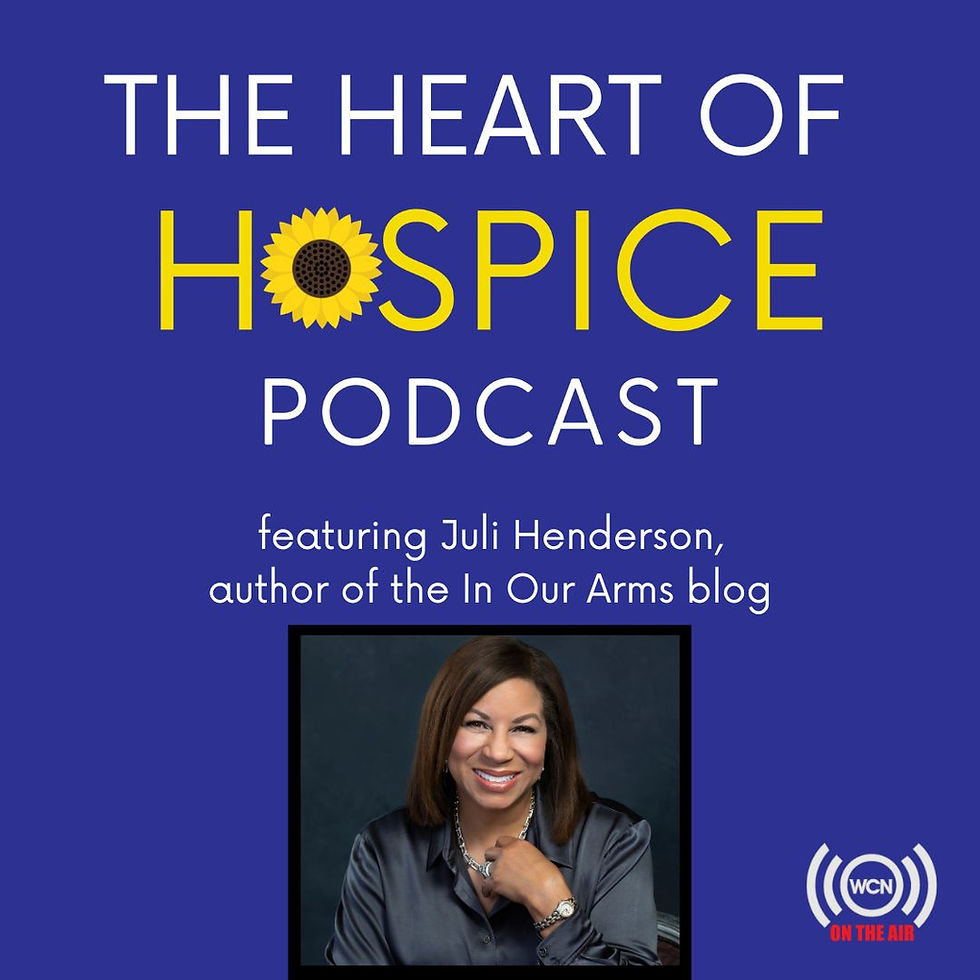It’s All About the Patient.
- Jan 26, 2020
- 3 min read
It’s not all about you. Yes, that’s right.
If you’re a hospice professional, part of your job is creating and following a Plan of Care for each patient. The Plan of Care is individualized for each patient based on what his needs are. Management of symptoms is a primary focus, things like pain, shortness of breath, anxiety, agitation, constipation. Areas of concern like depression, guilt, and anticipatory grief are also included as part of the responsibilities of the social worker and spiritual counselor, or chaplain. That Plan is all about the patient.
The interventions on that Plan of Care are supposed to be a reflection of the wishes of the patient inside the ethical, legal, and clinical practice boundaries within which hospice teams are required to function.
But do those Plans of Care really show what the patient wants? Or are they simply the same cookie-cutter tasks we do for all our patients just to stay compliant with laws and regulations?
Are the interventions on your Plans of Care really even about your patients? Or are they about your hospice team? Lots of the things we do for our patients are really about us, about our financial or staffing needs. How many visits we schedule, what kind of equipment we’ll furnish, what brand and how many briefs and diapers we provide – that’s all about the hospice agency.
Here’s the thing – it’s not about you. It’s about your patients. The people you serve at the end of their lives, during serious illness, dying, and death. The hospice care you provide should be all about them.
You don’t have to agree with what they want. You might think they’re crazy to find quality of life in things you would never consider for yourself. It’s not your choice. Hospice is all about what the patient chooses for himself, or what his caregiver chooses if a patient can no longer voice his needs and wishes.
Medication for pain, especially opioids like morphine, can be a topic on which patients and end of life team don’t agree. Patients are often reluctant or completely opposed to using them. That opinion can be based on fear of addiction or overdosing, a history of Substance Use Disorder, or cultural beliefs. Does that patient’s culture believe that pain is purifying, a natural part of dying that he needs to experience? Maybe using a narcotic ends years of hard-won sobriety.
We know as healthcare professionals that we’re supposed to provide high quality care, to strive for excellence in everything we do for our patients. It compromises our care if we’re just out to meet regulations, to make sure that we can pass surveys and audits without losing money or getting in trouble. It has to be about more than that.
Hospice care is patient-centered. The patient and whoever he calls family is at the center of everything we do. People you serve at the most intense time of life need you to put them first. Quality of care is important, but so is quality of life. Make your Plans of Care all about your patient. It gets to be all about them.
Because – no matter who they are, or where they are in their hospice journeys, our patients are The Heart of Hospice.




Comments